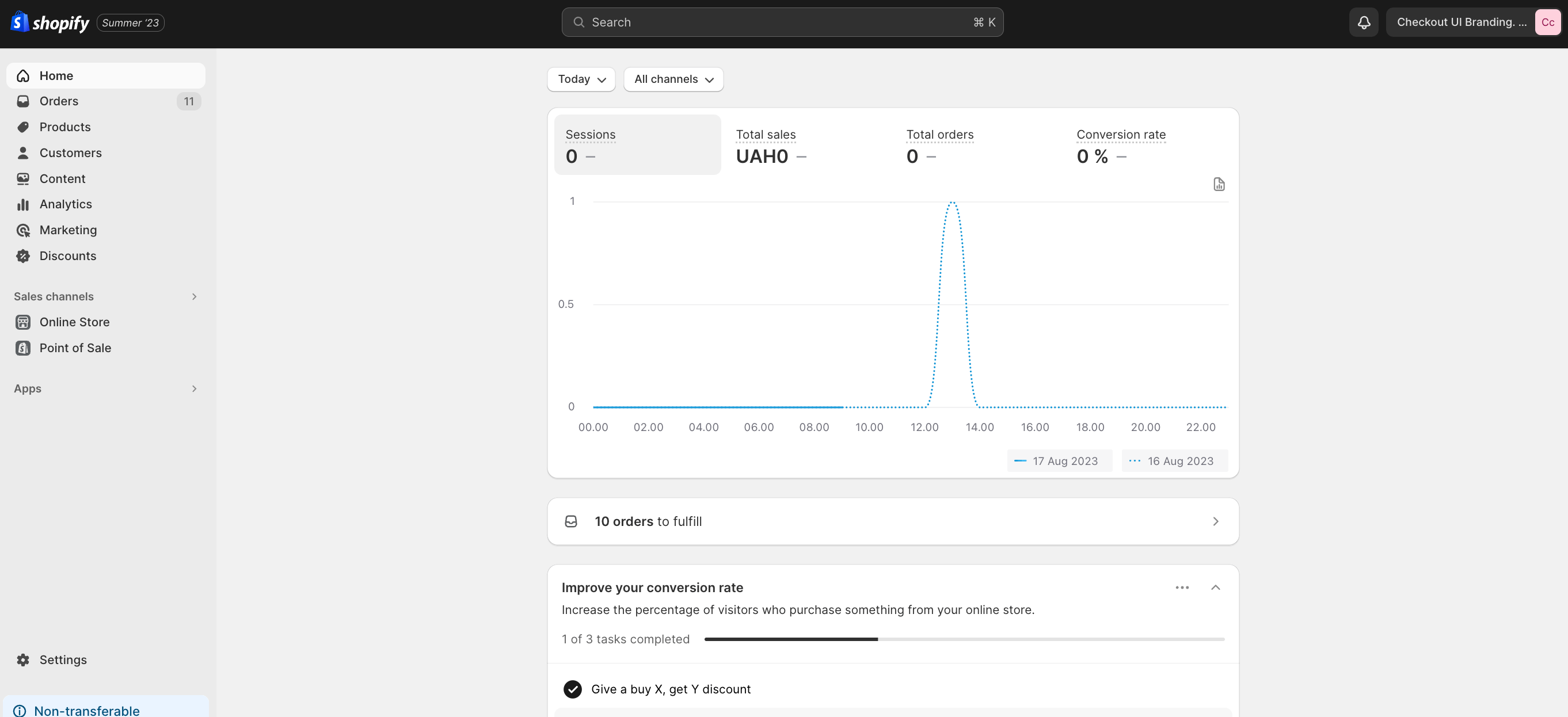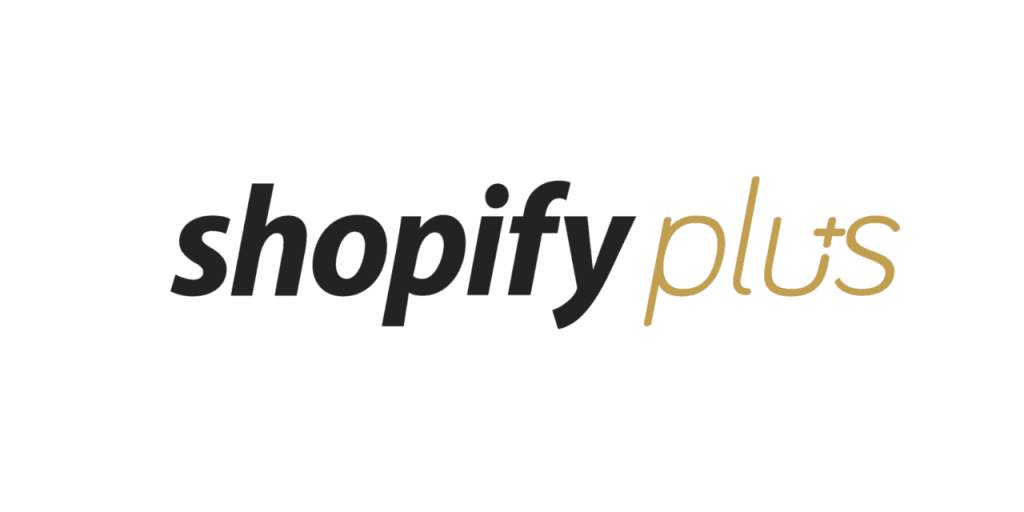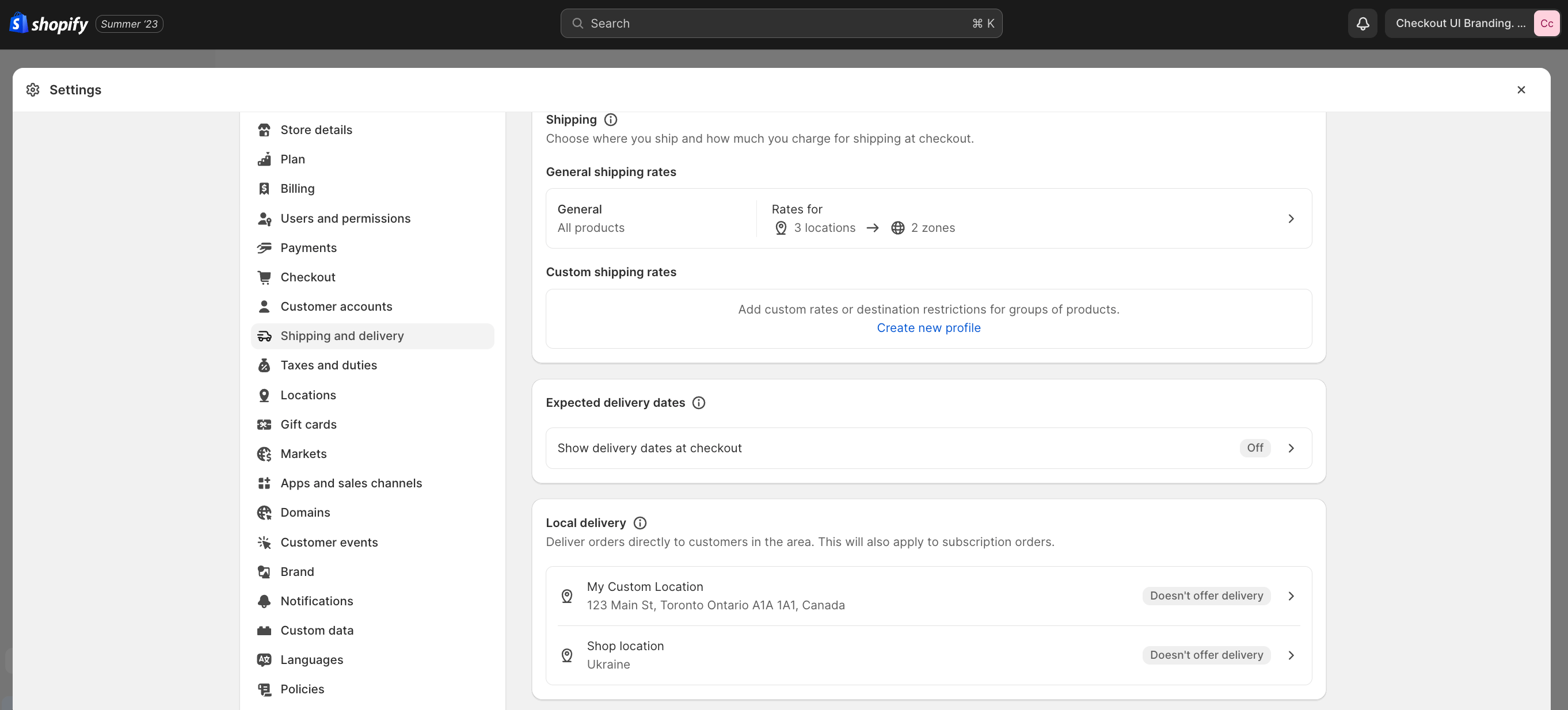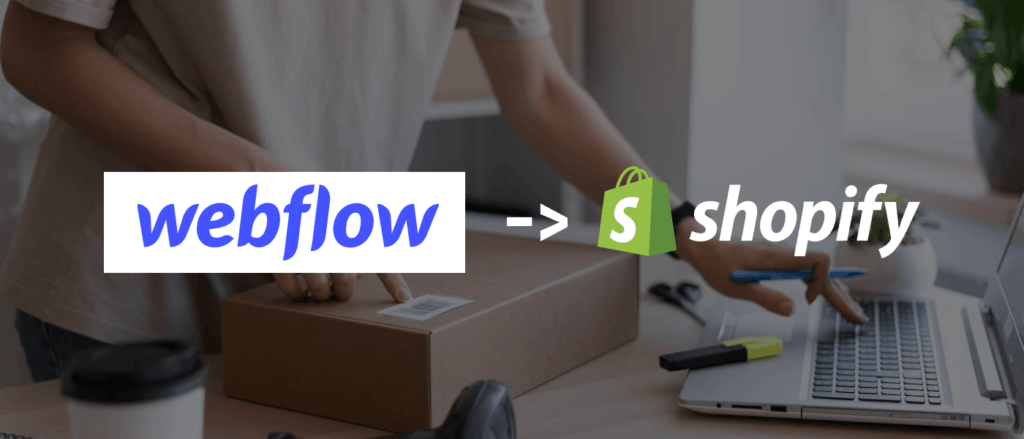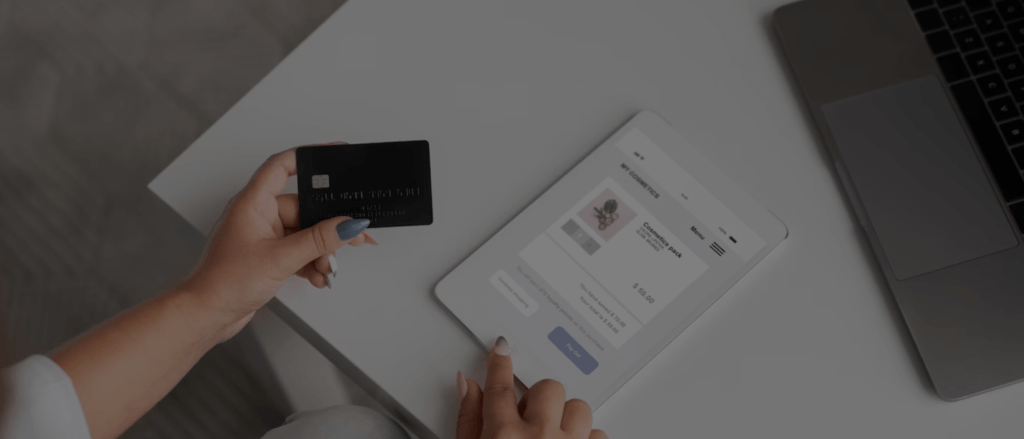Is Shopify good for B2B? A Game-Changer for Boosting Sales and Streamlining Operations
 September 06, 2023
September 06, 2023 Shopify has long been recognized as a leading platform for B2C businesses, but it is also gaining traction as a game-changer for B2B companies. Is Shopify good for B2B? With its user-friendly interface, extensive features, and customizable options, Shopify is proving to be a valuable tool for boosting sales and streamlining operations in the B2B sector.
Is Shopify good for B2B businesses?
When considering whether Shopify is a good choice for B2B businesses, it is important to evaluate its features and capabilities. Shopify offers a range of B2B-specific features, such as wholesale pricing, custom catalogs, and tiered pricing options. These features allow B2B businesses to create a personalized experience for their customers and offer them the flexibility they need.
Additionally, Shopify's easy-to-use interface and intuitive design make it accessible to businesses of all sizes. Whether you are a small B2B startup or an established enterprise, Shopify provides the tools you need to manage your online store effectively.
Whether Shopify is a good choice for your B2B business depends on your specific needs and how you plan to adapt the platform to suit those needs. Here are some factors to consider:
- Customization: Shopify offers a range of customization options through its themes and apps. You may need to tailor your Shopify store to accommodate B2B features like tiered pricing, wholesale ordering, and account-specific pricing. This may require the use of third-party apps or custom development work.
- Wholesale Features: There are apps available in the Shopify App Store that can help you add wholesale functionality to your Shopify store, such as setting up wholesale pricing, minimum order quantities, and customer-specific discounts.
- Integration: Consider whether Shopify can integrate seamlessly with your existing B2B systems, such as ERP (Enterprise Resource Planning) or CRM (Customer Relationship Management) software. Shopify has an API that allows for integrations, but the extent of integration will depend on your specific requirements.
- User Management: B2B businesses often need user-specific access, roles, and permissions. Shopify does offer some user management features, but they may not be as robust as what you'd find in dedicated B2B e-commerce platforms.
- Payment and Invoicing: B2B transactions often involve invoicing and credit terms. You may need to work with third-party apps or customize Shopify to handle these aspects effectively.
- Customer Support: B2B customers often require dedicated account management and support. You may need to implement a system to manage customer accounts and inquiries effectively.
- Scalability: Shopify can handle businesses of various sizes, but if your B2B business experiences rapid growth, you'll need to ensure that Shopify can scale with your needs.
- Costs: Consider the costs associated with using Shopify for your B2B business. This includes subscription fees, app costs, and any custom development work.
In summary, while Shopify is primarily designed for B2C businesses, it can be adapted for B2B use with the right customization and third-party apps. However, it may not offer the same level of B2B-specific features and capabilities as dedicated B2B e-commerce platforms. Your decision should be based on your specific requirements and how well Shopify can meet them within your budget and technical capabilities.
Understanding Shopify Plus for B2B
For larger B2B businesses with complex needs, Shopify Plus offers a more advanced solution. Shopify Plus provides enterprise-level features, including dedicated account managers, advanced analytics, and scalable infrastructure. These features are essential for B2B businesses that require a high level of customization and flexibility.
Shopify Plus also integrates seamlessly with existing systems and applications, making it easy to streamline operations and manage inventory. With its robust features and scalability, Shopify Plus is an ideal choice for B2B businesses looking to take their operations to the next level.
Benefits of using Shopify Plus for B2B
Using Shopify Plus for B2B brings numerous benefits to businesses. One of the key advantages is the ability to create a personalized and branded experience for customers. With Shopify Plus, B2B businesses can customize their online stores to reflect their unique brand identity and offer a seamless shopping experience.
Another significant benefit of Shopify Plus for B2B is the ability to leverage advanced analytics and reporting. This allows businesses to gain insights into customer behavior, monitor sales performance, and make data-driven decisions to optimize their operations.
Furthermore, Shopify Plus offers a scalable infrastructure that can handle high volumes of traffic and transactions. This ensures that B2B businesses can handle peak demand periods without any disruptions, providing a reliable and responsive experience for their customers.
Shopify B2B wholesale options
Shopify B2B wholesale options are designed to cater specifically to the needs of B2B businesses. One of the key features is the ability to set up wholesale pricing for different customer groups. This allows businesses to offer tiered pricing based on the volume or frequency of purchases, incentivizing customers to increase their orders.
Additionally, Shopify B2B wholesale options include the ability to generate custom catalogs for each customer group. This means that businesses can create tailored product listings and pricing for different customers, ensuring a personalized experience that meets their specific needs.
Another important feature of Shopify B2B wholesale options is the ability to set up minimum order quantities or order thresholds. This helps businesses manage their inventory and ensure that orders meet their minimum requirements.
Shopify B2B solutions for streamlining operations
Shopify B2B solutions offer a range of tools and features to streamline operations and improve efficiency. One of the key solutions is the ability to integrate Shopify with existing systems and applications. This means that businesses can seamlessly connect their online store with their inventory management, CRM, and accounting systems, eliminating manual data entry and reducing the risk of errors.
Furthermore, Shopify B2B solutions include features such as bulk order processing and automated fulfillment. These features enable businesses to process large volumes of orders quickly and accurately, saving time and resources.
Shopify B2B solutions also include robust inventory management tools. Businesses can track stock levels, set up alerts for low inventory, and manage multiple warehouses or locations. This ensures that businesses have real-time visibility into their inventory and can fulfill orders in a timely manner.
Is Shopify better for B2B or B2C businesses?
While Shopify is widely recognized as a leading platform for B2C businesses, it is also highly suitable for B2B businesses. The key difference lies in the features and functionality that each type of business requires.
Shopify offers a range of B2B-specific features, such as wholesale pricing, custom catalogs, and tiered pricing options. These features are essential for B2B businesses that need to offer personalized experiences and flexible pricing to their customers.
Additionally, Shopify's user-friendly interface and intuitive design make it accessible to businesses of all sizes. Whether you are a B2B startup or an established enterprise, Shopify provides the tools you need to manage your online store effectively.
Creating a Shopify B2B ecommerce store
Creating a Shopify B2B ecommerce store is a straightforward process that involves a few key steps. First, businesses need to sign up for a Shopify account and choose a suitable plan. Shopify offers different plans to cater to the needs and budget of businesses of all sizes.
Once the account is set up, businesses can customize their online store by choosing a theme and adding their branding elements. Shopify offers a range of professionally designed themes that can be easily customized to reflect the unique identity of the business.
Next, businesses can add their products to the online store, set up pricing, and configure shipping options. Shopify provides a user-friendly interface that makes it easy to manage product listings, inventory levels, and fulfillment processes.
Finally, businesses can launch their Shopify B2B ecommerce store and start promoting their products to their target audience. With Shopify's built-in marketing tools and integrations with popular advertising platforms, businesses can reach their customers effectively and drive sales.
Exploring the features of Shopify Plus for B2B
Shopify Plus offers a range of advanced features that are specifically designed for B2B businesses. One of the key features is the ability to create custom pricing and discounts for different customer groups. This allows businesses to offer personalized pricing based on the specific needs and purchasing behavior of their customers.
Another important feature of Shopify Plus for B2B is the ability to create custom catalogs. Businesses can create tailored product listings and pricing for different customer groups, ensuring a personalized experience that meets their unique requirements.
Shopify Plus also provides advanced analytics and reporting capabilities. Businesses can gain insights into customer behavior, monitor sales performance, and make data-driven decisions to optimize their operations.
Additionally, Shopify Plus offers a scalable infrastructure that can handle high volumes of traffic and transactions. This ensures that B2B businesses can handle peak demand periods without any disruptions and provide a reliable and responsive experience for their customers.
Are you looking to take your wholesale business to the next level? With the right tools and strategies, you can expand your reach and increase your sales in the B2B market. Shopify, one of the leading ecommerce platforms, offers a range of features specifically designed to help businesses like yours thrive in the wholesale industry. In this comprehensive guide, we will explore the key features and best practices for running a successful wholesale business on Shopify.
1. Creating Company Profiles for Wholesale Buyers
To effectively manage your B2B relationships, it's crucial to have a system in place that allows you to create and manage wholesale company profiles. With Shopify, you can easily create profiles for your wholesale buyers, complete with multiple locations and associated buyers. This feature enables you to keep track of your buyers' information and preferences, making it easier to provide personalized service and streamline your operations.
2. Product Publishing and Pricing
Offering a personalized buying experience is essential in the B2B market. Shopify allows you to curate product selections and create customized price lists for your wholesale buyers. You can set flexible purchasing rules, assign percentage-based pricing, and apply discounts specific to each buyer or location. This level of customization enables you to cater to the unique needs and preferences of your wholesale customers, ultimately enhancing their buying experience.
3. Flexible Payment Options for Seamless Transactions
Efficient payment processing is crucial for a smooth wholesale operation. Shopify offers a range of flexible payment options to streamline the order process. You can create automated net payment terms, draft orders, and even enable vaulted credit cards for quick and secure transactions. Additionally, Shopify allows you to generate invoices, ensuring that your wholesale buyers receive accurate and professional payment documentation.
4. B2B Checkout for Wholesale Pricing
In the B2B market, it's important to display wholesale pricing during the checkout process. With Shopify's B2B checkout feature, you can easily show wholesale pricing based on the buyer's company profile. This ensures that your wholesale customers have a seamless and transparent buying experience, with pricing information readily available at the point of purchase.
5. Secure Customer Accounts for Wholesale Access
Authentication is a crucial step in the B2B sales process. With Shopify, you can authenticate your wholesale buyers, ensuring that only authorized individuals can access your wholesale products and pricing. This feature adds an additional layer of security and protects your business from unauthorized access. Furthermore, customer accounts allow your buyers to view and manage their account information, order history, and more.
Now that we've explored the essential features of running a wholesale business on Shopify, let's dive deeper into some additional tips and insights from successful B2B brands.
6. Leveraging Custom Themes and Discounts
Customizing your store's theme is an effective way to create a unique and memorable brand experience. Shopify provides a wide range of custom themes that you can tailor to match your wholesale business's aesthetic and branding. Additionally, you can offer exclusive discounts to your wholesale buyers, incentivizing them to choose your products over your competitors'.
7. Harnessing the Power of Shopify Functions and APIs
To maximize the potential of your wholesale business, it's important to leverage the full capabilities of Shopify. The platform offers a wide variety of functions and APIs that can enhance your operations, automate repetitive tasks, and integrate with other systems. By taking advantage of these features, you can streamline your processes, improve efficiency, and ultimately drive more sales.
8. Embracing Buyer Trends in the B2B Market
Understanding and adapting to buyer trends is essential for success in the B2B market. As more businesses shift their purchasing online, it's important to meet their expectations from discovery to delivery. Three key trends impacting B2B buyers include:
- Omnichannel Experience: B2B buyers expect a seamless experience across multiple channels, from browsing products online to placing orders through various devices. Ensure your wholesale business provides a consistent and user-friendly experience across all touchpoints.
- Personalized Buying: Just like consumers, B2B buyers crave personalized experiences. Tailor your offerings, pricing, and communication to the specific needs and preferences of your wholesale customers to build strong and lasting relationships.
- Unified Brand Experience: Whether a buyer interacts with your business on your DTC website or through your wholesale channel, they should feel a sense of unity. Maintain consistent branding, quality, and service across both parts of your business to instill trust and loyalty.
9. Insights from Successful B2B Brands
Learning from successful B2B brands can provide valuable insights and inspiration for your wholesale business. Here are seven tips from Shopify brands that have successfully expanded into B2B ecommerce:
- Prioritize customer experience: Focus on providing exceptional service and personalized support to your wholesale buyers.
- Invest in marketing and branding: Build a strong brand presence to attract and retain wholesale customers.
- Streamline operations: Automate processes and invest in tools that improve efficiency and reduce manual work.
- Offer competitive pricing: Conduct market research to ensure your pricing is competitive and attractive to wholesale buyers.
- Build strong relationships: Cultivate long-term relationships with your wholesale customers by understanding their unique needs and providing tailored solutions.
- Provide educational resources: Help your wholesale customers succeed by offering educational content and resources that empower them in their own businesses.
- Adapt and evolve: Continuously monitor market trends and adapt your strategies to stay ahead of the competition and meet changing customer demands.
10. Evaluating Ecommerce Platforms for B2B Success
When choosing an ecommerce platform for your wholesale business, there are key features to consider. Here are six essential features to evaluate when selecting an ecommerce platform:
- Wholesale-specific functionality: Ensure the platform offers features specifically designed for B2B selling, such as customer profiles, pricing customization, and payment options.
- Scalability: Look for a platform that can grow with your business, accommodating increased wholesale orders and expanding product catalogs.
- Integration capabilities: Check if the platform can seamlessly integrate with other systems, such as ERP or inventory management software, to streamline your operations.
- User-friendly interface: A user-friendly platform makes it easier for your wholesale buyers to navigate and place orders, leading to a better overall experience.
- Responsive customer support: Prompt and reliable customer support is crucial when running a wholesale business. Look for a platform that offers excellent support services.
- Security and reliability: Ensure the platform prioritizes data security and provides reliable hosting, ensuring your wholesale business runs smoothly and securely.
In conclusion, running a successful wholesale business on Shopify requires a combination of essential features, strategic insights, and a commitment to meeting buyer expectations. By leveraging the powerful tools and resources offered by Shopify, adopting best practices from successful B2B brands, and carefully evaluating ecommerce platforms, you can position your wholesale business for growth and success in the competitive B2B market.
To learn more about running a B2B business on Shopify, visit Shopify's B2B Help Center.
Pricing considerations for Shopify B2B
When considering the pricing for Shopify B2B, businesses need to evaluate their specific needs and budget. Shopify offers different pricing plans that cater to businesses of all sizes.
For smaller B2B businesses, the Shopify Basic plan provides all the essential features at an affordable price. This plan is suitable for businesses that are just starting or have a limited budget.
For larger B2B businesses with more complex needs, Shopify Plus offers an enterprise-level solution. The pricing for Shopify Plus is tailored to the specific requirements of each business and can vary based on factors such as the number of users, transaction volume, and customization requirements.
It is important for businesses to carefully evaluate their needs and consider the long-term scalability of their operations when choosing a Shopify pricing plan.
How to sell on Shopify B2B
Selling on Shopify B2B involves a few key strategies and best practices that businesses can follow to maximize their success. First and foremost, businesses need to understand their target audience and create a compelling value proposition. This involves identifying the pain points and challenges that their customers face and offering solutions that meet their specific needs.
Next, businesses should invest in creating high-quality product listings and engaging content. Clear and detailed product descriptions, professional product images, and customer reviews are essential for building trust and credibility with potential buyers.
Businesses also need to optimize their online store for search engines. This involves conducting keyword research, optimizing product titles and descriptions, and building high-quality backlinks to improve search engine rankings.
Furthermore, businesses should leverage social media platforms and other marketing channels to promote their Shopify B2B store. Engaging with customers through social media, running targeted advertising campaigns, and offering exclusive promotions are effective strategies for driving traffic and generating sales.
Conclusion: Why Shopify is a game-changer for B2B businesses
In conclusion, Shopify is a game-changer for B2B businesses due to its extensive features, user-friendly interface, and customizable options. Whether you are a small B2B startup or an established enterprise, Shopify provides the tools you need to boost sales and streamline operations.
With Shopify Plus, larger B2B businesses can take advantage of advanced features and enterprise-level solutions to meet their complex requirements. The ability to create personalized experiences, leverage advanced analytics, and scale operations make Shopify a valuable platform for B2B businesses.
If you are considering creating a B2B store on Shopify, contact Mgroup today to get started. Their team of experts will guide you through the process and help you unlock the full potential of Shopify for your B2B business.
